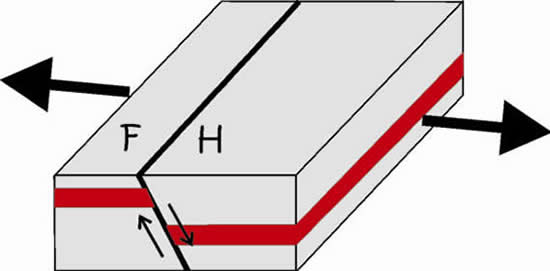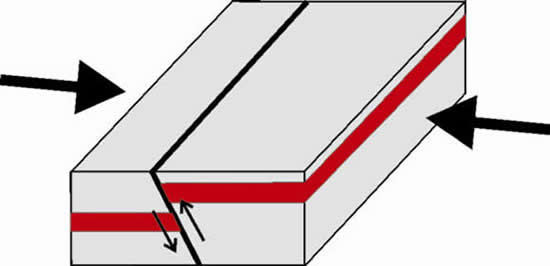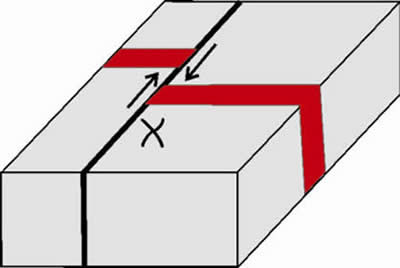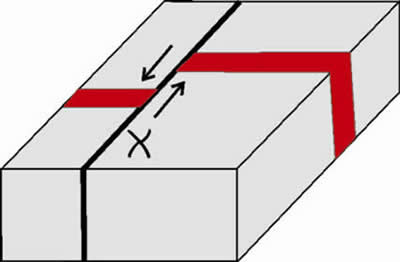-Stage 2.2-
Faults

Here are the main parts of a fault:
-
Hanging Wall (H) - The block that rests on top of the fault
-
Foot Wall (F) - The block the lies below the fault
-
These are always the same no matter the direction of fault movement
-
Normal Fault - When the hanging wall moves down and the foot wall moves up
-
Extension - The large arrows on the side show the movement of the blocks. This is when the blocks move away from each other.

-
Reverse Fault - Pretty much the opposite of a normal fault
-
The hanging wall moves up while the foot wall moves down
-
Compression - The blocks are pushed together
-
Thrust Fault - A reverse fault that is extremely shallow (less than 30°)
There are 2 types of strike-slip faults depending on the direction of movement
Strike-Slip Fault - This is when two blocks slide past one another. The San Andreas Fault is a strike-slip fault
Right Lateral

Right Lateral - Say you were standing on the X, a right lateral is when the opposite block moves right compared to where you were standing
Left Lateral

Left Lateral - It is the opposite of a right lateral strike slip fault. When you are standing on the X, the opposite block moves to the left.
